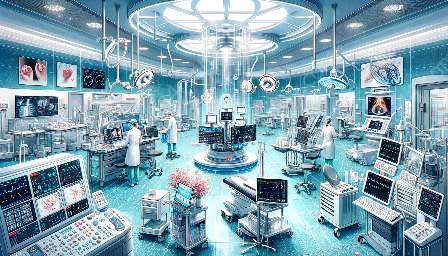Wearable biomedical devices have been revolutionizing the healthcare industry, providing individuals with real-time health data and enabling healthcare professionals to monitor patients remotely. The latest advancements in this field have presented innovative technologies that have significant implications for biomedical instrumentation and medical devices.
Latest Technological Innovations
Recent advancements in wearable biomedical devices have focused on enhancing their capabilities to monitor various health parameters. For instance, there are now wearable devices that can track not only the standard vital signs such as heart rate and blood pressure, but also more complex metrics such as blood oxygen levels, glucose levels, and even electrocardiogram (ECG) readings.
These devices have also integrated advanced sensors and analytics algorithms to provide more accurate and comprehensive health data. For example, biosensors capable of analyzing sweat can now provide valuable information about an individual's hydration levels, electrolyte balance, and even detect the presence of certain biomarkers related to specific medical conditions.
Furthermore, advancements in wearable device design have led to the development of more comfortable, unobtrusive, and aesthetically pleasing devices. This has significantly improved user acceptance and adherence to wearing these devices for extended periods, consequently enhancing the quality and quantity of health data collected.
Impact on Biomedical Instrumentation
The integration of advanced sensor technologies and data analytics in wearable biomedical devices has not only transformed personal health monitoring but has also impacted the field of biomedical instrumentation. The demand for smaller, more accurate, and energy-efficient sensors has driven research and development in this area, leading to the creation of cutting-edge sensor technologies that are now being incorporated into various biomedical instruments.
For example, the miniaturization of sensors and the development of wireless communication capabilities have enabled the creation of implantable biomedical devices that can monitor a patient's health from within the body. These devices can wirelessly transmit real-time health data to external monitoring systems, providing invaluable information for medical diagnosis and treatment.
Another significant impact on biomedical instrumentation is the advancement of data analytics algorithms for processing the vast amount of health data collected by wearable devices. These algorithms have not only improved the accuracy of health parameter measurements but have also facilitated the development of predictive analytics for early disease detection and personalized health interventions.
Implications for Medical Devices
The latest advancements in wearable biomedical devices have profound implications for medical devices, particularly in the areas of patient monitoring and disease management. Healthcare providers are now able to remotely monitor patients' health in real time, allowing for proactive interventions and potentially reducing the need for frequent hospital visits.
Moreover, the integration of wearable biomedical devices with telehealth platforms and electronic health records has improved the continuity of care and enabled more personalized and data-driven healthcare strategies. Medical devices such as infusion pumps, insulin pumps, and cardiac monitors are now being designed to seamlessly integrate with wearable health monitoring systems, providing a more comprehensive approach to patient care.
Furthermore, the availability of rich, longitudinal health data collected by wearable devices has facilitated the development of personalized medicine approaches. Physicians can now make treatment decisions based on a patient's real-time health status and historical health trends, potentially improving treatment outcomes and reducing healthcare costs.
Conclusion
The latest advancements in wearable biomedical devices for health monitoring represent a significant leap forward in the convergence of technology and healthcare. The integration of advanced sensor technologies, data analytics, and wireless communication capabilities has not only empowered individuals to take control of their health but has also transformed the landscape of biomedical instrumentation and medical devices. As these advancements continue to evolve, the potential for improving healthcare delivery and patient outcomes with wearable biomedical devices is boundless.


